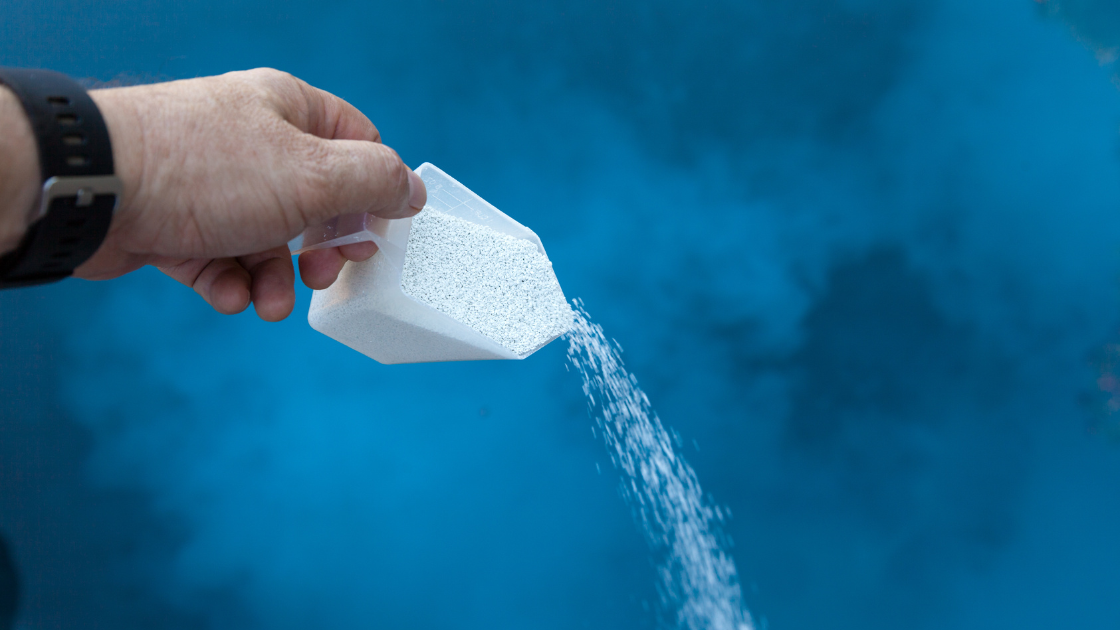
Why Chlorine is Bad for You: Understanding the Health Risks
Table of contents
In recent years, there has been growing awareness about the potential health risks associated with chlorine, especially when it comes to our daily routines like showering. While chlorine is commonly used as a disinfectant in drinking water and swimming pools, its impact on health is often overlooked. In this comprehensive guide, we will explore why chlorine is bad for you and how it can affect your overall well-being.
What is Chlorine?
Chlorine is a chemical element widely used for its disinfectant properties. It is most commonly found in municipal water supplies and swimming pools due to its effectiveness in killing bacteria and other microorganisms. Chlorine is also used in various industrial applications, including the production of plastics and solvents.
💡 Did you know?
Chlorine was used as a chemical weapon during World War I before its disinfectant properties were widely recognized. Today, it’s primarily known for keeping our drinking water and swimming pools clean!
The Science Behind Chlorine Exposure
When chlorine is added to water, it forms various chemical compounds, including chloramines and trihalomethanes (THMs). These compounds can have several adverse effects on health, especially when exposure is prolonged or at high concentrations.
1. Respiratory Issues
One of the primary concerns with chlorine exposure is its effect on the respiratory system. Chlorine gas, when inhaled, can irritate the airways and lungs, leading to symptoms such as coughing, wheezing, and shortness of breath. For individuals with asthma or other respiratory conditions, chlorine exposure can exacerbate symptoms and trigger asthma attacks.
2. Skin Irritation and Dryness
Chlorine can also affect the skin, especially during activities such as swimming in chlorinated pools or showering with chlorinated water. Chlorine strips the skin of its natural oils, leading to dryness, irritation, and potentially exacerbating conditions like eczema and psoriasis. Prolonged exposure can disrupt the skin’s natural barrier, making it more susceptible to infections and irritants.
3. Eye Irritation
Chlorine is known to cause irritation in the eyes. When chlorine in water or air comes into contact with the eyes, it can cause redness, itching, and discomfort. This is particularly common in swimming pools, where the concentration of chlorine can be higher.
4. Digestive Health
While the primary concern is usually with external exposure, drinking water containing chlorine or its byproducts can also affect digestive health. Chlorine can disrupt the balance of beneficial bacteria in the gut, which is crucial for proper digestion and overall health. Additionally, chlorine has been linked to an increased risk of certain gastrointestinal issues and can contribute to the formation of potentially harmful compounds in the digestive tract.
Health Risks of Chlorine Byproducts
As mentioned earlier, chlorine reacts with organic matter in water to form byproducts like chloramines and THMs. These compounds can be more harmful than chlorine itself and are associated with several health risks:
1. Increased Cancer Risk
Long-term exposure to THMs, which are formed when chlorine reacts with organic matter in water, has been linked to an increased risk of certain cancers, including bladder cancer and colorectal cancer. Studies have shown that individuals with high levels of THM exposure are at a greater risk of developing these cancers.
2. Reproductive and Developmental Issues
Some research suggests that exposure to high levels of chlorine and its byproducts may have adverse effects on reproductive and developmental health. Pregnant women exposed to elevated levels of these chemicals may have an increased risk of complications, and there may be potential effects on fetal development.
How to Reduce Chlorine Exposure
Given the potential health risks associated with chlorine exposure, it's important to take steps to minimize your contact with it. Here are some effective strategies:
1. Use a Shower Filter
One of the most effective ways to reduce chlorine exposure is by using a high-quality shower filter. Products like the Weddell Duo Shower Filter are designed to remove chlorine and its byproducts from your shower water, helping to protect your skin, hair, and overall health.
2. Opt for Filtered Water
If you're concerned about chlorine in your drinking water, consider using a water filter that is designed to remove chlorine and other contaminants. There are various options available, including pitcher filters, faucet-mounted filters, and whole-house filtration systems.
3. Ventilate Swimming Areas
If you swim in chlorinated pools, ensure that the area is well-ventilated to minimize the inhalation of chlorine gas. Taking showers before and after swimming can also help reduce the amount of chlorine that comes into contact with your skin and eyes.
4. Stay Hydrated
Drinking plenty of water can help flush out chlorine and its byproducts from your system. Ensure that your drinking water is filtered to remove any chlorine or other contaminants.
Conclusion
Understanding why chlorine is bad for you is crucial for making informed decisions about your health and well-being. From respiratory and skin issues to the potential risks associated with chlorine byproducts, minimizing exposure to chlorine is an important step in maintaining optimal health. By using products like the Weddell Duo Shower Filter and making conscious choices about your water consumption, you can reduce your exposure to chlorine and protect yourself from its potential adverse effects.
For more information on how to improve your water quality and make healthier choices, explore our range of products and resources at Weddell Water. Your journey to better health starts with clean, filtered water.
References
Centers for Disease Control and Prevention. (2023, January 12). Water disinfection. https://www.cdc.gov/healthywater/drinking/public/water_disinfection.html
Fitzgerald, G. J. (2008). Chemical Warfare and medical response during World War I. American Journal of Public Health, 98(4), 611–625. https://doi.org/10.2105/ajph.2007.111930
World Health Organization. (n.d.). Trihalomethanes in drinking water. https://www.who.int/teams/environment-climate-change-and-health/water-sanitation-and-health/chemical-hazards-in-drinking-water/trihalomethanes
Hoyle, G. W., & Svendsen, E. R. (2016). Persistent effects of chlorine inhalation on respiratory health. Annals of the New York Academy of Sciences, 1378(1), 33–40. https://doi.org/10.1111/nyas.13139
S.R., V. (2022, August 9). What to Know About a Chlorine Rash?. WebMD. https://www.webmd.com/skin-problems-and-treatments/what-to-know-about-chlorine-rash
Cleveland Clinic. (2023, June 10). How does chlorine affect your eyes? https://health.clevelandclinic.org/how-does-chlorine-affect-your-eyes
Jandova, J., Schiro, G., Duca, F. A., Laubitz, D., & Wondrak, G. T. (2024). Exposure to chlorinated drinking water alters the murine fecal microbiota. Science of The Total Environment, 914, 169933. https://doi.org/10.1016/j.scitotenv.2024.169933
Gonsioroski, A., Mourikes, V. E., & Flaws, J. A. (2020). Endocrine Disruptors in Water and Their Effects on the Reproductive System. International Journal of Molecular Sciences, 21(6), 1929. https://doi.org/10.3390/ijms21061929
Centers for Disease Control and Prevention. (2023, May 19). Chloramines and pool operation. https://www.cdc.gov/healthy-swimming/toolkit/chloramines-and-pool-operation.html
Popkin, B. M., D'Anci, K. E., & Rosenberg, I. H. (2010). Water, hydration, and health. Nutrition Reviews, 68(8), 439–458. https://doi.org/10.1111/j.1753-4887.2010.00304.x
Team Weddell Water
We're a passionate group of experts and self-care enthusiasts dedicated to revolutionizing the way you experience water. Based in Orange County, California, our team combines the expertise of PhD engineers, researchers, and health advocates to create innovative water filtration solutions like the Weddell Duo, ensuring cleaner, safer water for everyone.



0 comments